Oman, once thought to be the next Abraham Accords signer, criminalizes relations with Israel


Oman, once thought to be the next Abraham Accords signer, criminalizes relations with Israel

After serving 38 years as a board member of the Milton S. and Corinne N. Livingston Foundation, with the last 30 years as chairman, Bob Kully has stepped down from his leadership position. Bob is one of only three people who served as chairman of the Livingston Foundation since its inception. Bob will remain on the Livingston Foundation board.
Board member Susie Norton stated, “The Livingston Committee is so fortunate to have our almost 75-year history led by wise and thoughtful chairmen. Bob Kully, as a Livingston relative, has challenged us to think boldly and expansively in how we can best serve Omaha’s Jewish and secular communities, and also make a difference in organizations in Israel. I believe that Milt and Corinne Livingston would be proud of his leadership and his legacy of intentional philanthropy.”
The Livingston Foundation was established by Milton and Corinne Liv-
ingston in 1948 as a private charitable foundation. In 2012 the Livingston Foundation converted its status to a donor-advised fund at the Jewish Federation of Omaha Foundation. The Livingston Foundation’s primary goal is to support Jewish institutions and projects. Secondary to that goal is the support of health, education, cultural and social services in the Omaha metro area from Jewish institutions to
local food pantries, and other secular charities. During the last 50 years the Livingston Foundation awarded over $15 million to non-profit organizations in the Omaha area.
Bob has a long history of commitment and dedication to volunteerism in the Omaha Jewish community, as well as the secular community. Bob has served on the boards of the Jewish See Livingston Foundation page 2
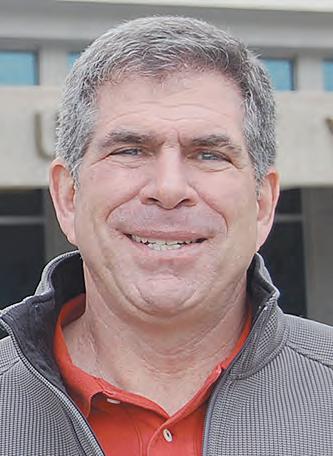
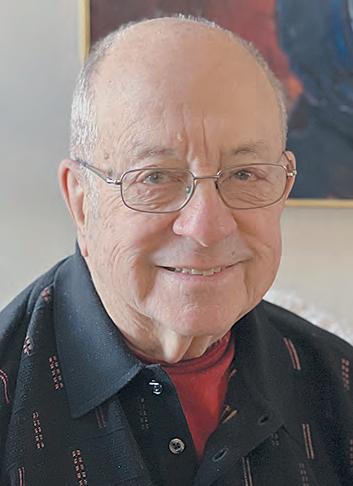
On Jan. 19 at 1 p.m. the Dorothy Kaplan Book Discussion Group will gather for their monthly meeting. Group members have the choice of meeting either in person in the Benjamin & Anna Wiesman Reception Room in the Staenberg Jewish Community Center or via Zoom. This month they will be discussing
The Jew Store by Stella Suberman. New participants are always welcome. What, you may ask yourself, is a “Jew Store?” Quite simply, it was a term used in rural America in the early 1900’s to refer to the smalltown America universal dry goods and odds and ends stores owned by Jews. These stores were established by Jewish families who left the more populated Jewish cities in search of financial opportunities and business success. One such family was Stella Suberman’s who ventured to the small town of Concordia, Tennessee, in 1920. It was there that Aaron Bronson (Stella’s father) along with his wife and children established
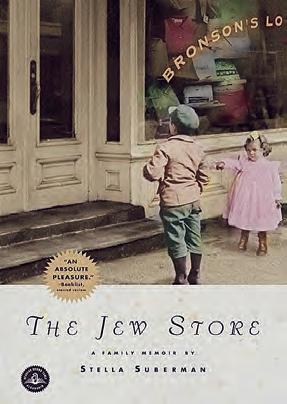
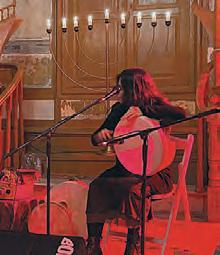
Executive Director

Born Aug. 21, 1934, in Sioux City, Iowa, to Mary (Kiser) and Harry Rabiner, Mickey (Maxine Shirlee) lived with purpose, enriching the lives of people she encountered and causes lucky enough to claim her devotion. Fashion-forward and magnetic, she was a leading light, challenging people’s better angels to follow her trailblazing, making possible the improbable.
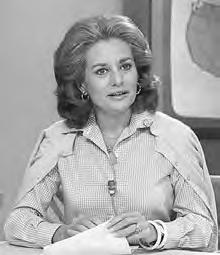
Though worldly and wise, she emerged from a simple small-town background in Storm Lake, Iowa, where she forged childhood friendships and with-
stood persecution at a young age. Her family was the only Jewish family in Storm Lake. The youngest by nine years of four sisters, she was the first in her family to attend college. Mickey obtained a degree in education from the University of Nebraska where she was a member of Sigma Delta Tau sorority, serving as its President. In 1963 she settled in Omaha, Nebraska, venturing into communal work where her determination thrust her into myriad leadership roles and relationships with influential people, including then Nebraska Governor Bob Kerrey and Warren Buffett.
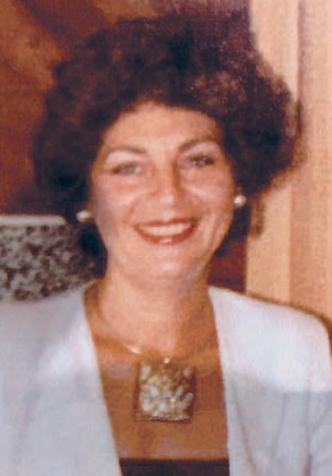

Continued from page 1
Federation of Omaha, the Jewish Federation of Omaha Foundation, Jewish Family Service, and the Anti-Defamation League. He has served on committees at Temple Israel, the Executive Committee of the Small Business Council of the Omaha Chamber of Commerce, the boards of Nebraskans for Research, and the University of Nebraska Medical Center. Bob currently serves on the Yale Richards Professional Educational Seminar Planning Committee.
In 2001 Bob was honored with the Humanitarian of the Year by the Jewish Federation of Omaha. To recognize this honor, the Livingston Foundation established the Robert I. Kully Endowment Fund at the Jewish Federation of Omaha Foundation. This fund’s purpose is to help support a project which furthers and promotes the mission of the Jewish Federation, and is selected by Bob.
Board member Myron Kaplan said, “Bob has provided outstanding leadership in his 30 years serving as President of the Livingston Foundation. He has carried on Milton and Corinne Livingston’s vision when they created the Livingston Founda-
tion. I look forward to his continued involvement with the Foundation. I know Bob Belgrade will do an outstanding job in continuing the legacy of the Livingston Foundation as it enters its 75th year of operation.” New board chairman Bob Belgrade has served on the board since 2008.
“I am excited for Bob Belgrade to assume the chairmanship of the Livingston Committee! Bob has shared many memories of having Sunday lunches with his grandfather and with Milt Livingston, which feels like a lovely continuation of leadership by those who have been directly impacted by the Livingstons. Bob Belgrade shares Bob Kully’s passion for honoring the Livingstons in our giving, and brings his own deliberate, thoughtful leadership qualities, which I know will guide us to continue our tradition of meaningful support in Omaha and beyond,” stated board member Susie Norton.
Continued from page 1
Bronson’s Low-Priced Store. While this is a memoir of Stella’s family and their lives, she has changed the names of the people and the town itself.
Concordia is not a very welcoming place as the Bronsons settle in and seek to establish themselves and their store. Influential businessmen like Tom Dillion constantly challenge and hinder Aaron and the Ku Klux Klan inflicts its own brand of terror on his store’s lone African American employee. As the only Jews for miles around, the Bronsons are faced with many challenges: what to do about the lack of kosher food; what to do about the children’s Jewish education; what to do about son Joey’s upcoming bar mitzvah; how to find a Jewish dating pool for older sister Miriam, and how to find a mohel when Stella’s mother discovers she’s pregnant. Spoiler alert, since the baby is Stella, the problem solves itself.
As Stella relates the story of the Bronsons’ lives in Concordia, we learn about the prejudices that existed towards not only African Americans but also Jews. We are shown how the lack of child labor laws affected the town’s largest shoe factory and how that contributed to the town’s survival during the Depression.

An anonymous donor in our community has created two trade school scholarship opportunities, up to $5,000 each, to go towards the 2023-24 academic year.

Not every student who advances into higher education signs up for a four-year curriculum. Some high school graduates seek job training that lasts a year or two and then places them in the workforce. Such opportunities include, but are not restricted to: Information Technology, Construction, In-
Under Bob Kully’s leadership the Livingston Foundation has flourished and helped so many people and organizations in the Omaha area. The Jewish Federation of Omaha Foundation sincerely thanks Bob for his hard work and dedication to the Livingston Foundation and to the Omaha metropolitan area. Visit
Stella’s mother always viewed the family’s time in Concordia as temporary. In 1933 the family finally moves back to New York City – not because of business failure but rather for the sake of preserving the family’s Jewishness.
Please feel free to join us on Jan. 19 in person or via Zoom. The Dorothy Kaplan Book Discussion Group meets on the third Thursday of every month at 1 p.m. New members are always welcome.
dustrial, Transportation and Horticulture. It is not too late to apply for this upcoming school year!
Qualified students who have unmet needs regarding tuition for either a two-year trade school program or a trade certificate program can contact the Jewish Press at avandekamp@jewishom aha.org or jpress@jewishomaha.org for more information.
The Group receives administrative support from the Community Engagement & Education arm of the Jewish Federation of Omaha. For information about the group and to join in the discussion, contact Shirly Banner at 402.334.6462 or sbanner@jewishomaha.org

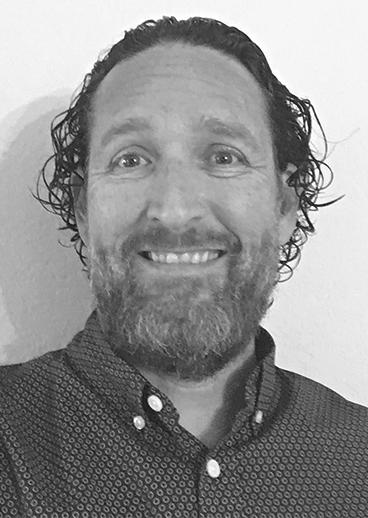 AMY BERNSTEIN SHIVVERS Executive Director, JFO Foundation
AMY BERNSTEIN SHIVVERS Executive Director, JFO Foundation
Please mark your calendars and let your family and friends know about the Jewish Federation of Omaha Foundation’s Ethical Wills Workshop, coming in February.
Ethical wills, sometimes called spiritual or legacy letters, are resources Jews have used for centuries to articulate and pass on deeply held values and beliefs. Historically, they were letters written by parents to children; now they often address a wider circle of friends and family, and can come in audio, video, or other creative formats. They contain a person’s moral legacy, including stories, life lessons, and blessings for the future. Unlike wills that govern material assets and property, ethical wills are not enforceable by law. They are values articulated, saved, and passed on to future generations. By doing so, we provide an important window for our loved ones and strengthen the family narrative as a whole. This workshop is for all ages!
Dirk Bird is facilitating the workshop. Dirk resides in Colorado and is the Vice President of Planned Giving & Endowment and Managing Director of the Jewish Federation of North America. Collaborating on this Workshop has been really wonderful. Dirk is high-energy and has been involved in the Omaha Jewish Community over the years. In the development stage of brainstorming the workshop, Dirk emphasized that the sharing of values between and among the generations is an incredibly important outcome of this process. Families are encouraged to participate and share not only their values with each other, but who and what shaped those values. We also create an ethical will to reflect on how we have lived and how we wish to live; to give and to ask for love; to pass on what we don’t want forgotten; to forgive and to be forgiven; to remember and to be remembered; to leave behind something personal and distinctive for friends and family.
The Jewish Ethical Wills Workshop is a two-part interactive program to help you and your loved ones articulate values, explore issues of legacy, and navigate liminal moments.
“Both during and between the sessions, there will be time for reflection and introspection,” Dirk said. “The goal here is not the final product of the ethical will, but rather the ensuring that
Continued from page 1
During the 1970s, she rose through the volunteer ranks in Omaha’s Jewish Federation, supercharging its United Jewish Appeal campaign. And as co-chair of the Women’s Division, she hatched the brilliant idea to bring Holocaust survivor Gerda Klein to Omaha to unfurl her incredible story at a series of teas, melting the women’s generous hearts, as well as those of her impressionable adolescent children.
Mickey was driven to be a blessing herself. She understood that as a Jew she was put on earth for a reason involving responsibilities and challenges to meet a higher standard. Consistent with the Jewish tenant that the loss of one human being is the loss of an entire world, she worked to assure a Holocaust would never happen again. To her great credit, she used her voice, her organizational abilities and her resources to advance this noble goal.
Her tireless efforts on behalf of sustaining the memory of those who perished in the Holocaust are well recognized by the Holocaust Museum in Washington, D.C. She also earned her way into Who’s Who of American Women.
When Mickey moved to La Jolla in 1988 following a bout with breast cancer, her tenacity, courage, outgoing nature, and ever-present desire to impact the world helped her forge a new life in California where she made more friends and championed a myriad of vital causes. Friends say of her, “You never had to ask Mickey for anything; she just knew what to do. If you had a cold, soon chicken soup would show up on your stoop.”
Entrusted with a beautiful soul, Mickey used it to move through the world with seriousness, purpose, generosity, kindness and love. She understood the ultimate question of life is not how great you think you are, but how great you think your purpose is. She taught others how to stand out for noble reasons by standing out so nobly herself... and to
we provide a thoughtful, intentional, reflective process for the participants. As a result, we seek to create an environment that allows people to reconnect with the moments and people who shaped the lens through which they view the world and enable families to be open and curious in sharing their value stories with each other.”
Session One: Thursday, Feb. 2, noon – 1:30 p.m. CST
There will be time in-between to reflect and create.
Session Two: Thursday, Feb. 23, noon – 1:30 p.m. CST


This type of workshop has been hosted in other Jewish communities. I asked Dirk to share some examples of things people have discussed in their ethical wills:
“A wide variety of things,” he said. “Because we focus on the building blocks of our values, we find that participants share stories of mentors, family members, and experiences that they may not have previously shared with their loved ones. In addition, we often see the generation of parents and grandparents sharing their hopes for the future and for their families and their community. This can take the form of the next generation honoring the values of their parents/grandparents and forming and articulating their own values.”
During the last few years, we have all experienced life during a pandemic. Personally, this has been a time of deep reflection and re-evaluating priorities. This workshop can be the instrument and impetus to take the time to reflect, create, share, reconnect and be intentional with life decisions. Plus, our loved ones deserve to know what is in our hearts and our dreams and how our past has shaped us. Perhaps now is the time to create your ethical will!
The first session of this two-part series is virtual to encourage family near and far to join us. Depending on the number of local attendees, the second session may be in-person, hosted by Beth El, with a virtual option for out-of-towners. To register, please visit www.jfofoundation.org or scan the QR code. Reserve your spot early as space is limited.

always try to retain a sense of humor about life.
Her life was a gift and Judaism and the practice of religion was the stability in the life of her son, Bob. This marks the fifth anniversary of the Mickey (Sturm) Stern Memorial Endowment Fund which Bob opened to keep his mother’s life and legacy going strong.
Bob’s wish is that Mickey’s memory and life’s work inspire others to live Jewishly. Mickey’s endowment at the Foundation continues to fund the cost for therapists and counselors to provide mental health services for Jewish clients at Jewish Family Services. On average, 25 Jewish patients have been helped each year in our community. “I am committed to making sure that those with mental illness could seek the help they need, without the limitations of personal finances; either through Jewish Family Service directly or helping to cover the cost of needed psychiatric care or other mental health services”, Bob said.
Bob and his younger sister, Melanie, grew up in Omaha and attended Westside High School and Temple Israel. Bob went to University of Nebraska Lincoln and finished college with two degrees from UNO. Bob recalls celebrating every Jewish holiday at his childhood home in Omaha. “Omaha is a great place to raise kids and, in our family, religion was an anchor and created stability,” Bob shared. Bob, Melanie and their father, Don, now reside in Colorado and when they are in town, they visit the newly renovated JCC campus.
The Omaha Jewish Community thanks Bob for endowing his mother’s legacy with the Mickey (Sturm) Stern Memorial Endowment Fund. Her life was a gift to our community and she continues to be remembered by supporting mental health and wellness in Omaha.
When you are ready to establish an endowment in memory of your loved ones please reach out to me at 402.334.6466 or ashivvers@jewishomaha.org


Jewish Community Relations Council (JCRC), Assistant Director
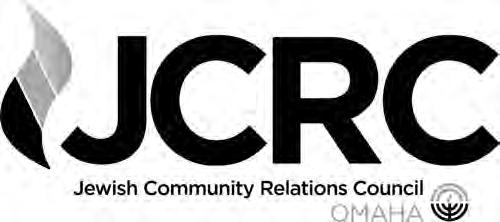

Clean Speech Nebraska is a community-wide, month-long campaign to clean up our conversations, one word at a time.


ful, community-building speech.
There is no cost to participate. During the month of February 2023, you’ll receive a daily lesson to watch or read. There are also weekly challenges to try out, and inspiring memes, too.
Please let the Jewish Press know in advance when you are leaving and when you are returning. Sometimes several papers are sent to your “old” address before we are notified by the Post Office. Every time they return a paper to us, you miss the Jewish Press and we are charged! Please call us at 402.334.6448 or email us at jpress@jewishomaha.org.
By encouraging mindfulness and personal awareness, we can create a more peaceful and respectful world, where our communities are united and connected.
Presented by the Jewish Community Relation Council (JCRC) Clean Speech Nebraska will kick off in February 2023 with a month of videos, and a workbook inspired by Jewish values focused on being mindful of how we speak to each other when we disagree.
Just as Jewish tradition offers guidelines for respectful, community-oriented speech, Clean Speech Nebraska encourages people of all faiths to cleanse their speech and be more mindful of the language they use. In fact, Clean Speech Nebraska will be the first local initiative to focus specifically on respect-
Why participate? Just about anyone who develops a greater awareness of the way they communicate with others will enjoy smoother, more pleasant interactions and relationships. It’s just no fun to live in a nasty, back-biting world filled with careless speech that causes us all discomfort and pain. This will help!

Scan the QR code to sign up and get your FREE Clean Speech Nebraska merch!


Barbara Walters, the iconic newswoman and celebrity interviewer who made history for women and Jewish anchors on mainstream American news television, died at 93 on Dec. 30, 2022.
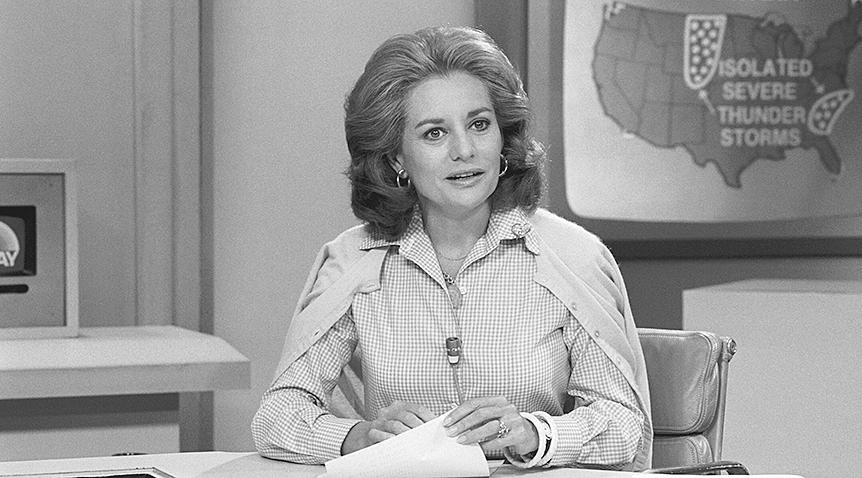
ABC News, where Walters regularly appeared on shows such as 20/20 and The View, shared the news without giving a cause of death.
Before becoming one of the most enduring and talked about news hosts in the world from the 1970s through the 2000s, Walters was raised by parents descended from Jewish immigrants who fled antisemitism in Eastern Europe. Her father Lou founded a chain of nightclubs and moved the family from Boston to Miami to New York, earning and losing fortunes along the way.
In 2006, Walters told The Washington Post that her parents were not religious, and she never celebrated Jewish holidays while growing up. But she noted that her father would always come home from his Latin Quarter clubs on Friday nights, which she saw as a nod to a family Shabbat tradition. As an adult, she began buying Christmas trees each year, proclaiming she loved the holiday. Walters was married four times, to three different Jewish men. She had one child, with theater impresario Lee Guber, who demanded that their daughter attend Hebrew school. While married to producer Merv Adelson — from 1981-84 and then from 1986-92 — they celebrated Jewish holidays “because it was important to him,” she told the Post
Walters worked her way up through the ranks at NBC in the early 1970s, becoming the first female co-host of The Today Show in 1974. In 1976, she moved to co-host what was then the “ABC Evening News.” She became a longtime contributor to 20/20, ABC’s primetime TV news magazine show that competed with CBS’ 60 Minutes, and co-founded and co-hosted The View, starting in 1997.
Walters was known for her candid interviewing style — “She
invented intimacy on television,” an ABC producer once said — but also hit her subjects with blunt, cutting questions. Some of her most famous interviews included Jewish figures, including Monica Lewinsky, who Walters called her biggest “get.” She asked Lewinsky if she would tell any future children about her affair with President Bill Clinton, which rattled Washington in a way few other scandals have.
“Mommy made a big mistake,” Lewinsky replied.
“And that,” Walters said in an often-quoted response, “is the understatement of the year.”

Walters also scored the first joint interview with Egyptian President Anwar Sadat and Israeli Prime Minister Menachem Begin, before they finished negotiating a historic peace agreement in 1979. In 1977, she had also interviewed Sadat on his flight to meet with Begin in Israel.
Her style was often debated, including by some critics who thought she ushered in the era of news as entertainment, and parodied by the likes of Gilda Radner on Saturday Night Live In 2014, she appeared on SNL, proclaiming that it was an honor “to see my groundbreaking career in journalism be reduced to a cartoon character with a ridiculous voice.”
If you encounter an antisemitic or other hate incident, you are not alone. Your first call should be to the Jewish Community Relations Council (JCRC) in Omaha at 402.334.6572, or email JCRCreporting@jewishomaha.org. If you perceive an imminent threat, call 911, and text Safety & Security Manager James Donahue at 402.213.1658.
Prague has the dubious honor of being chosen by Adolf Hitler to be a record of what he hoped would be the vanquished Jews of Europe. The Nazis left many of the city’s synagogues and Jewish sites relatively intact, intending to showcase them as the remnants of an extinct culture.
That has made Prague a popular tourist destination for both Jewish travelers and others interested in Jewish history since the fall of the Iron Curtain: the city provides an uncommon look into the pre-war infrastructure of Ashkenazi Europe. Could Izmir, Turkey’s third largest city, become a Sephardic Prague, in terms of history and tourism? That’s the goal for Nesim Bencoya, director of the Izmir Jewish Heritage project.
The city, once known in Greek as Smyrna, has had a Jewish presence since antiquity, with early church documents mentioning Jews as far back as the second century AD. Like elsewhere in the Ottoman Empire, though, its community grew exponentially with the influx of Sephardic Jews who came after their expulsion from Spain.
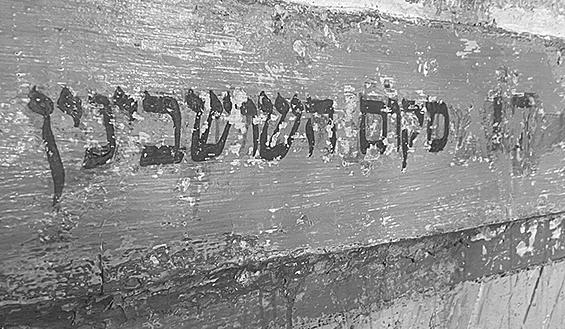
At its peak, the city was home to around 30,000 Jews and was the hometown of Jewish artists, writers and rabbis — from the esteemed Pallache and Algazii rabbinical families, to the musician Dario Marino, to the famously false messiah, Shabbetai Zevi, whose childhood home still stands in Izmir today.
Today, fewer than 1,300 remain. The establishment of the state of Israel, coupled with a century of economic and political upheaval, led to the immigration of the majority of Turkish Jewry.

“From the 17th century, Izmir was a center for Sephardic Jewry,” Bencoya told the Jewish Telegraphic Agency. “We can’t recreate that, but we cannot forget that either.”


Bencoya, who is in his late 60s, was born in Izmir but spent most of his adult life in Israel, where he led the Haifa Cinematheque, but he returned to Izmir 13 years ago to helm the heritage project, which has worked to highlight the the culture and history of Izmir’s Jewish community.
Over nine days in December that included the week of Hanukkah, thousands attended the annual Sephardic culture festival that he has organized since 2018. The festival included concerts of Jewish and Ladino music, traditional food tastings, lectures on Izmir’s Jewish community, and — since it coincided with Hanukkah and also a Shabbat — both a menorah lighting ceremony and havdalah ceremony were conducted with explanations from Izmir’s leading cantor, Nesim Beruchiel.
This year’s festival marked a turning point: it was the first in which organizers were able to show off several of the centuriesold synagogues that the project — with funding from the European Union and the local municipality — has been restoring.
The synagogues, most of which are clustered around a street still called Havra Sokak (havra being the Turkish spelling of the Hebrew word chevra, or congregation) represent a unique piece of cultural heritage.
Once upon a time, the street was the heart of the Jewish quarter or “Juderia,” but today it is right in the middle of Izmir’s Kemeralti Bazaar, a bustling market district stretching over 150 acres where almost anything can be bought and sold.
On Havra Sokak, the merchants hock fresh fruits, and hopefully fresher fish. One street to the south one can find all manner of leather goods; one to the north has markets for gold, silver and other precious metals; one to the west has coffee shops. In between them all are other shops selling everything from crafts to tchotchkes to kitchenware to lingerie.
Several mosques and a handful of churches dot the area, but the synagogues revive a unique character of the district that had been all but lost.
“The synagogues here were built under the light of Spain. But in Spain today, there are only two major historic synagogues, Toledo and Cordoba, and they are big ones. You don’t have smaller ones. Here we have six on one block, built with the memory of what was there by those who left Spain,” Bencoya said.
Those synagogues have been home to major events in Jewish history — such as when Shabbetei Zvi broke into Izmir’s Portuguese Synagogue one Sabbath morning, drove out his opponents and declared himself the messiah (he cultivated a See Festivel revives Sephardic jewel page 6
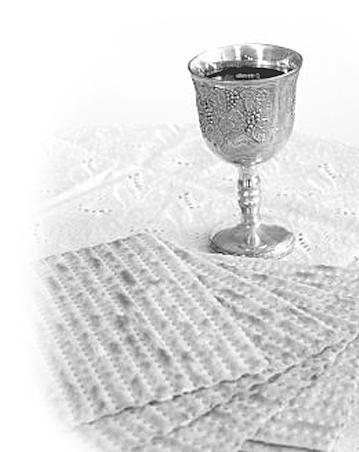

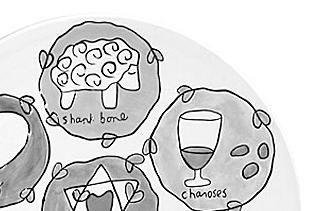

Continued from page 5 large following but was later imprisoned and forced to convert to Islam). The synagogue, known in Turkish as Portekez, was among those restored by the project.
Today, only two of Izmir’s synagogues are in regular use by its Jewish community, but the others that were restored are now available as exhibition and event spaces.
Hosting the festival within Izmir’s unique synagogues has an additional purpose, since the overwhelming majority of the attendees were not Jewish.
“Most of the people who come to the festival have never been to a synagogue, maybe a small percentage of them have met a Jew once in their lives,” Bencoya said.
That’s particularly important in a country where antisemitic beliefs are far from uncommon. In a 2015 study by the AntiDefamation League, 71% of respondents from Turkey believe in some antisemitic stereotypes.
“This festival is not for Jewish people to know us, but for non-Jews,” Bencoya said. Now, “hundreds of Turkish Muslim people have come to see us, to listen to our holidays and taste what we do.”
Kayra Ergen, a native of Izmir who attended a Ladino concert and menorah lighting event at the end of the festival, told JTA that until a year ago, he had no idea how Jewish Izmir once was.
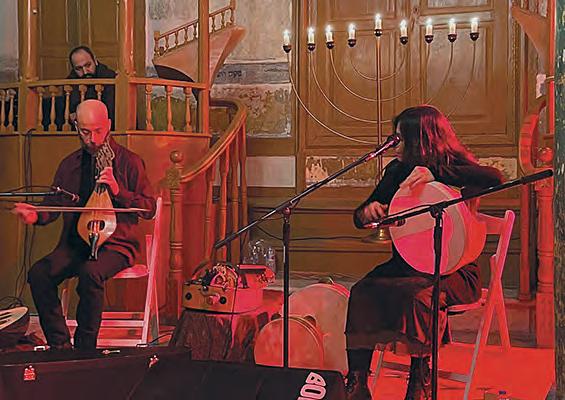
“I know that Anatolia is a multicultural land, and also Turkey is, but this religion, by which I mean Jewish people, left this place a long time ago because of many bad events. But it’s good to remember these people, and their roots in Izmir,” Ergen said. “This is so sad and lame to say out loud, but I didn’t know about this — that only 70 years ago, 60% of this area here in Konak [the district around Kemeralti] was Jewish. Today I believe only 1,300 remain. This is not good. But we must do whatever we can and this festival is a good example of showing the love between cultures.” “I think it’s good that we’re respecting each other in here,”
said Zeynep Uslu, another native of Izmir. “A lot of different cultures and a lot of different people. It’s good that we’re together here celebrating something so special.”
Izmir’s history as a home for minorities has not been all rosy. At the end of the Ottoman period, the city was around half Greek, a tenth Jewish and a tenth Armenian, while the remainder were Turkish Muslims and an assortment of foreigners. In the Greco-Turkish war of 1919-1922 — remembered in Turkey as the Turkish War of Independence — the Greek and Armenian quarters of Izmir were burned to the ground after the Turkish army retook the city from the Greek forces, killing tens of thousands. A mass exodus of the survivors followed, but the Jewish and Muslim portions of the city were largely unharmed.
Izmir is not the only city in Turkey which has seen its synagogues restored in recent years. Notable projects are being completed in Edirne, a city on the Turkish western border near Bulgaria, and Kilis, on its southeastern border near Syria. Unlike Izmir, though, no Jews remain in either of those cities today, and many have accused the project of being a tool for President Recep Tayyip Erdogan’s government to assuage accusations of antisemitism, without actually dealing with living Jews.
LOSING LADINO AND A ‘QUIET’ MINDSET
Bencoya lamented that he is among the last generation for whom Ladino — the Judeo-Spanish language traditionally spoken by Sephardic Jews, but only spoken by tens of thousands today — was at least a part of his childhood.
“When you lose language, it’s not only technical, it’s not only vocabulary, it’s a whole world and a way of thinking,” Bencoya said.
The project is challenging a local Jewish mentality as well. Minority groups in Izmir, especially Jews, “have for a long time preferred not to be seen, not to be felt,” according to Bencoya.
That mindset has been codified in the Turkish Jewish community’s collective psyche in the form of a Ladino word, “kayedes,” which means something along the lines of “shhh,” “be quiet,” or “keep your head down.”

“This is the exact opposite that I want to do with this festival — to be felt, to raise awareness of my being,” Bencoya said. One way of doing that, he added, was having the festival refer to the community’s identity “as Yahudi and not Musevi!” Both are Turkish words that refer to Jews: the former having the same root as the English word Jew — the Hebrew word Yehuda or Judea — while the latter means “follower of Moses.”
“Yahudi, Musevi, Ibrani [meaning Hebrew, in Turkish] — they all mean the same thing, but in Turkey, they say Musevi because it sounds nicer,” Bencoya said. “To Yahudi there are a lot of negative superlatives — dirty Yahudi, filthy Yahudi, and this and that. So I insist on saying that I am Yahudi, because people have a lot of pre-judgements about the name Yahudi. So if you have prejudgements about me, let’s open them and talk about them.”
“I am not so romantic that I can eliminate all antisemitism, but if I can eliminate some of the prejudgements, then I can live a little more at peace,” he added.

So far, he feels the festival is a successful first step.
“The non-Jewish community of Izmir is fascinated,” Bencoya said. “If you look on Facebook and Instagram, they are talking about it, they are fighting over tickets, which sell out almost immediately.”
Now, he is only wondering how he will be able to fit more people into the small and aged synagogues next year.
“For Turkey, [the festival] is very important because Turkey can be among the enlightened nations of the world, only by being aware of the differences between groups of people, such as Jews, Christians, others, and Muslims,” he said.

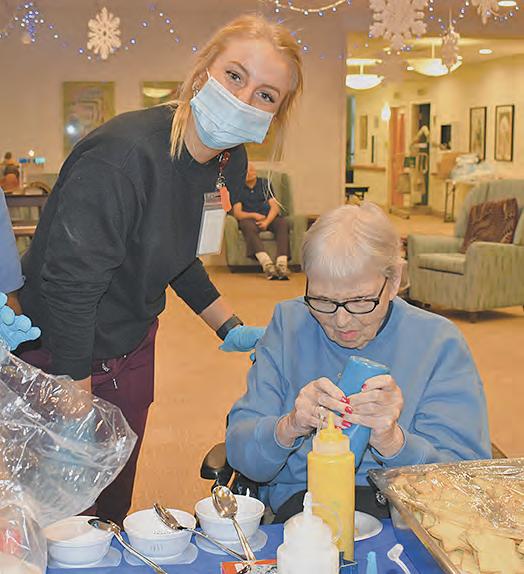
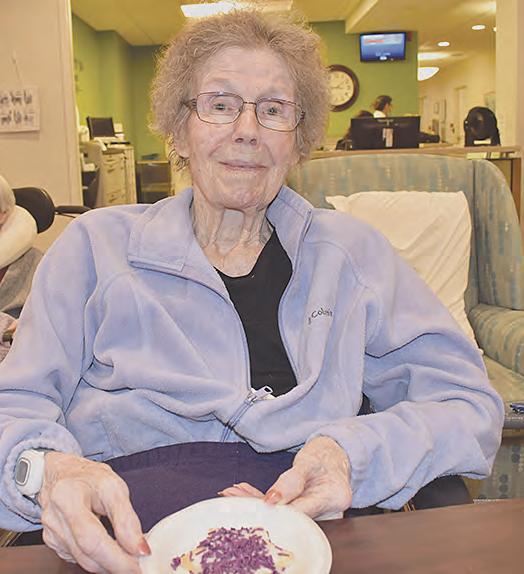






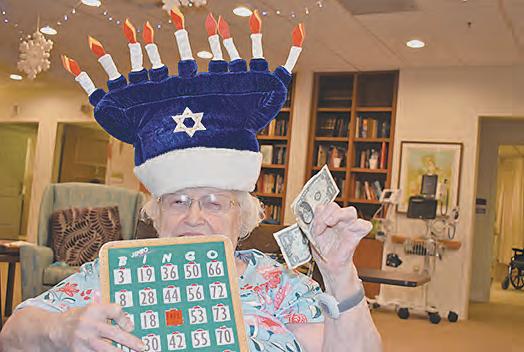
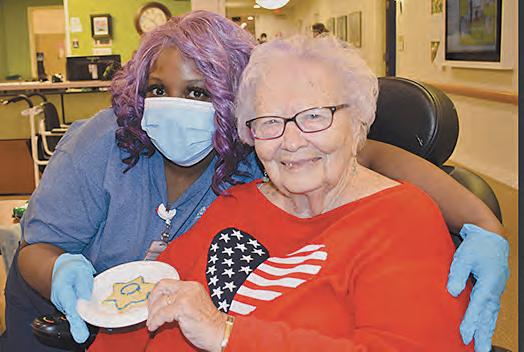
Margie Gutnik, President; Abigail Kutler, Ex-Officio; Seth Feldman; David Finkelstein; Ally Freeman; Mary Sue Grossman; Les Kay; Natasha Kraft; Chuck Lucoff; David Phillips; and Joseph Pinson.
The mission of the Jewish Federation of Omaha is to build and sustain a strong and vibrant Omaha Jewish Community and to support Jews in Israel and around the world. Agencies of the JFO are: Institute for Holocaust Education, Jewish Community Relations Council, Jewish Community Center, Jewish Social Services and the Jewish Press
Guidelines and highlights of the Jewish Press, including front page stories and announcements, can be found online at: www.jewishomaha.org; click on ‘Jewish Press.’
Editorials express the view of the writer and are not necessarily representative of the views of the Jewish Press Board of Directors, the Jewish Federation of Omaha Board of Directors, or the Omaha Jewish community as a whole. The Jewish Press reserves the right to edit signed letters and articles for space and content. The Jewish Press is not responsible for the Kashrut of any product or establishment.
The Jewish Press is an agency of the Jewish Federation of Omaha. Deadline for copy, ads and photos is: Thursday, 9 a.m., eight days prior to publication. E-mail editorial material and photos to: avandekamp@jewishomaha.org ; send ads (in TIF or PDF format) to: rbusse@jewishomaha.org
The Jewish Press welcomes Letters to the Editor. They may be sent via regular mail to: The Jewish Press, 333 So. 132 St., Omaha, NE 68154; via fax: 1.402.334.5422 or via e-mail to the Editor at: avandekamp@jewishomaha.org.
Letters should be no longer than 250 words and must be single-spaced typed, not hand-written. Published letters should be confined to opinions and comments on articles or events. News items should not be submitted and printed as a “Letter to the Editor.”
The Editor may edit letters for content and space restrictions. Letters may be published without giving an opposing view. Information shall be verified before printing. All letters must be signed by the writer. The Jewish Press will not publish letters that appear to be part of an organized campaign, nor letters copied from the Internet. No letters should be published from candidates running for office, but others may write on their behalf.
Letters of thanks should be confined to commending an institution for a program, project or event, rather than personally thanking paid staff, unless the writer chooses to turn the “Letter to the Editor” into a paid personal ad or a news article about the event, project or program which the professional staff supervised. For information, contact Annette van de Kamp-Wright, Jewish Press Editor, 402.334.6450.
The Jewish Press (USPS 275620) is published weekly (except for the first week of January and July) on Friday for $40 per calendar year U.S.; $80 foreign, by the Jewish Federation of Omaha. Phone: 402.334.6448; FAX: 402.334.5422.
Periodical postage paid at Omaha, NE. POSTMASTER: Send address changes to: The Jewish Press, 333 So. 132 St., Omaha, NE 68154-2198 or email to: jpress@jewishomaha.org
The headlines covering Israeli politics rarely fall in the good-news-category. But this one: Meet Amichai Chikli, Israel’s new Diaspora minister, who opposes BDS and Reform Judaism threw me for a loop. Not liking BDS (the Boycott, Sanctions and Divestment movement) I get- no surprise there. Many of us would agree. The second part of the headline, however, is clickbait. I have to know more.

“Though Chikli holds some views promoted by Diaspora Jews, he is disdainful of Reform Judaism, the largest denomination in the United States, and of the politics of American liberals, including President Joe Biden, who won a wide majority of U.S. Jews’ votes. He has said he believes the Pride flag is an anti-Zionist symbol and also equates public criticism of the Israeli government with antisemitism. [...] He appears to be on the same page as some of the extremist politicians about the propriety of LGBTQ demonstrations, calling Tel Aviv’s Pride Parade a “disgraceful vulgarity” in a Facebook post this summer. He also shares their disdain of Reform Judaism, a frequent target for some of the Religious Zionist politicians who are part of the governing coalition.” (Andrew Lapin, JTA)
He sounds like fun. But while I have zero patience with the stench of homophobia, I am not so sure I truly care that this man doesn’t like Reform Judaism. Just like we all individual Jews and our opinions should never be taken as those of all Jews, Chikli is only one Israeli politician. Besides, the av-
media coverage. The underlying message is one of discontent, strife, disagreement and even outright hatred. Jews fighting Jews; it’s not a pretty sight.
Here’s a radical idea. Rather than disagreeing passively (complaining behind each other’s back, writing negative press coverage about how rightwing the Israeli government is becoming, and why is Bibi still not in jail) we can disagree actively.
By that, I mean: accept that we’re all on different pages, and consider that our strength, rather than our weakness. What’s so bad about not seeing eye-toeye? Yes, it’s uncomfortable, and we imagine a nicer world in which we all feel only love towards one another. But that is not the reality. What, then, is the next best thing?
erage lifespan of the Israeli cabinet is measured in months rather than years, so who knows how long he will be in this position. We can all calm down. And yet, there is something deeper going on that I find disturbing.
Since the most recent elections, it seems the negativity is increasing, especially in much of the
The next best thing is dialogue. That dialogue can be messy and ugly, we can hurt each other’s feelings and get frustrated, but we keep talking. Maybe we use all the wrong words and inadvertently insult each other, but we keep talking. And we’ll have days when it seems we cannot possibly break bread together; when our views are so diametrically opposed that we’ll never dig ourselves out—but we keep talking.
Because if, as Jews, don’t continue the dialogue, I don’t know that we’ll ever see light at the end of the tunnel.
I was first introduced to Cardinal Joseph Ratzinger, later to become Pope Benedict XVI, in the late 1980s when he was visiting Jerusalem.
Teddy Kollek, mayor of Jerusalem, was eager for me to meet with the Cardinal, telling me that I would discover a very different person from the image portrayed in the general media. He was so correct.
That image was in no small part the result of Pope John Paul II having made him the head of the Vatican Office for Doctrine and Faith, to enforce orthodox Catholic teaching. In addition, the fact that Ratzinger was a shy man with a professorial background and attitude often led people to see him as aloof and even cold.
He could not have been more different. I discovered a man of warmth and humor whose company was enjoyable and stimulating. Most significant for me was the discovery of the depth of his respect for Judaism and the Jewish people, something that always impressed me in the course of more than a dozen encounters with him when he was Pope, most of which were in my capacity as the American Jewish Committee’s international director of interreligious affairs.
He always reiterated his commitment to continuing the path of his predecessor in advancing CatholicJewish relations, and he highlighted the unique relationship between Christianity and Judaism.
Benedict XVI, who died Dec. 31 at age 95, was the first pope to ever invite Jewish leaders both to the funeral of a pontiff, and above all, to the celebration of his own coronation at which I was privileged to be one of those present.
Already during the first year of his pontificate he received many Jewish delegations and notable individuals, including the chief rabbis of Israel and the chief rabbi of Rome. In receiving the latter, he declared, “The Catholic Church is close and is a friend to you. Yes, we love you and we cannot but love you, because of the Fathers: through them you are very dear and beloved brothers to us.”
The last time I met him personally was well after he had demonstrated his genuine and impressive humility in stepping down as pontiff and devoting him-
self to study and prayer. I visited him at the Mater Ecclesiae Monastery in the Vatican gardens. While he was physically weak his mind was still lucid.
We spoke in particular about the positive treatment of the Jewish scriptures in the work of the Pontifical Theological Commission that dealt with this subject, and which was published under his imprimatur. At that time, I recalled our first conversation in Jerusalem when he said to me, “Your duty as a believing Jew is to be true to Torah, and everything that is holy for you must have theological meaning for us.”
I said to him, “You know there are many of us who see religious significance in the return of the Jewish people to its homeland.”
“Of course, I know,” he replied. “We must also view it as a sign of God’s fidelity to His covenant with the Jewish people that has sustained you, even if we cannot attribute to it the same theological meaning as you might.”
Cardinal Ratzinger was a member of the papal commission that ratified the Fundamental Agreement between the State of Israel and the Holy See, establishing full diplomatic relations between the two. It was my great privilege to have been part of the Israeli negotiating team that concluded that agreement.

One of Ratzinger’s closest Israeli friends, the late professor Zvi Werblovsky of Hebrew University, told me that the cardinal phoned him from Rome to express his joy and congratulations on the agreement, declaring it to be a fulfillment of Nostra Aetate, the Second Vatican Ecumenical Council declaration of 1965 that revolutionized the Church’s teaching and approach towards Jews and Judaism.
During Benedict’s papacy a couple of serious crises in Jewish-Christian relations emerged relating to the Society of Saint Pius XII and to the wider
provision of the Latin Mass and its text. These crises, as much a result of church governance mismanagement as anything else, were followed by clarifications that emphasized the Vatican’s commitment to Nostra Aetate; its unqualified rejection of antisemitism as a sin against God and man, and a complete disavowal of proselytization of Jews.
Unfortunately, they still did not completely repair the damage to Benedict XVI’s papacy. Nevertheless, Benedict explicitly and sincerely strove to continue to advance the paths of his predecessor, especially regarding the relationship between the Church and the Jewish People.
In repeating his predecessor’s dramatic gestures of going to the great synagogue in Rome; of paying homage in Auschwitz to the victims of the Holocaust, and of making a pilgrimage to the Holy Land, where he paid respects to the State of Israel’s highest national civic and religious authorities, Pope Benedict institutionalized such steps, demonstrating the sincerity of Catholic-Jewish reconciliation for the Church as a whole.
Rabbi David Rosen the former chief rabbi of Ireland, is American Jewish Committee's International Director of Interreligious Affairs.
The views and opinions expressed in this article are those of the author and do not necessarily reflect the views of
70 Faces Media.
About a decade ago, I served on my synagogue’s rabbinic search committee. Normally I am allergic to any activity at which minutes will be taken, but it was a great experience, thanks to the care and intelligence that my fellow committee members brought to the process. Flush with satisfaction for a job well done and probably a little full of ourselves, we even imagined other synagogues might learn from our example. We spoke about putting together a seminar, or perhaps a how-to book. No one, I recall, suggested turning the experience into a novel.
That’s why I’m not Michelle Huneven, who this year published a novel about a church’s search for a new minister. I’ve been recommending it to anyone who wants to understand shul politics, or wants reassurance that Jews are just like everybody else, no more and no less.
Search is narrated by Dana, a 50-something restaurant critic, former seminarian and once-active congregant at a Unitarian Universalist church in Arroyo, California, who is recruited to the search committee when the current pastor announces plans to retire. The book tracks the search process from in-house focus groups to Skype interviews with applicants to the finalists’ “candidating week” — what you and I might call “auditions.”

Despite an unlikely premise for a mainstream novel, Search is a smart, funny and enlightening book about contemporary religion, especially of the liberal, undogmatic variety that is typical of Unitarian Universalism and, well, much of non-Orthodox Judaism. It’s a worthy companion to The New Rabbi, Stephen Fried’s 2002 nonfiction book about a Philadelphiaarea synagogue and its own search.
Huneven captures the impossible nature of a clergy person’s job, and especially the unrealistic expectations of congregations that want their spiritual leader to be all things to all people. Trying to narrow down what they are looking for, members of the search committee call out qualifications:
“‘Sermons with more spiritual depth and intellectual content,’ said Charlotte.
“‘Someone with an efficient, organized management style,’ said Belinda.”
Wonders Dana: “Who didn’t want a warm presence with a progressive social conscience, the management skills of a corporate CEO, and the work-life boundaries of a New Age
life coach?”
As the Conservative movement’s Rabbinical Assembly warns in its manual for search committees, searches founder “not because of a dearth of qualified candidates but because the congregation’s expectations of rabbinic candidates is unrealistic.”
Regular synagogue-goers will recognize the tensions in the novel between the older members and the newcomers, between boomers and millennials, between theists and humanists. At one point, the assistant minister remembers when a midweek service led by a student intern began attracting a core of people who weren’t showing up on Sundays.
days,” says a church consultant.
Unitarian Universalist, or UU, churches are also staunchly secular, which means the clergy don’t have to express a belief in God, let alone Jesus or a strict theology. That brings with it the paradox of choice: “Our ministers can be gay, trans, Buddhist, atheist, any race, or same-sex adoptive parents with mixed-race families. You name it,” says a member of the committee. “That’s the future. Everybody’s in.”
I would guess that a lot of liberal synagogues would love to be as open and diverse as that, but bump up against the reality that, despite a growing number of Jews by choice and Jews of color, synagogues tend to be white, upper-middle-class and heteronormative. As for theology, rare is the synagogue that doesn’t want its rabbi to “have been inspired to serve God,” as the R.A. handbook puts it; on the other hand, search committees disagree about how much theology and “God talk” they want from the bima.
And yet, even the most secular UU church or most liberal synagogue pursues the sacred in the ways they gather, worship, mourn and serve the community. As the squabbles intensify in Search, one older member of the committee laments that they’ve lost sight of their goal: how the search for a new clergyperson is a “a sacred task that will grow us spiritually.”
During my time on the search committee, I saw the sausage-making of synagogue life. Compromise is always hard. Even the most thorough, transparent search process is bound to disappoint someone.
“You can’t have two congregations, no matter how small one is,” she explains. “It sets up a potential schism.”
Clergy searches are fraught because nearly all congregants consider themselves the rabbi’s boss. On the flip side, members grow attached to longtime rabbis, even when they outlast their changing congregations. In Search, the senior minister has been with the church for eight years, but remains under the shadow of his beloved predecessor, who had served for 28 years. (I was married by the “new rabbi” at my wife’s family’s synagogue, who at that point had been on the job for about 20 years.)
Search isn’t a satire, exactly, but Huneven has fun with the political and social winds that are blowing through liberal denominations. Some of the congregants are set on hiring a woman after almost four decades of male leadership. “But we can’t say that explicitly,” Dana warns. Another character is angling to be the head of the national church association, “though it’s not such a clear shot for straight white guys these
The Book of Exodus tells us that the penultimate plague inflicted on Egypt, the plague of darkness, was one of the worst. The 16th-century Italian commentator Sforno, who lived in the aftermath of the Inquisition in Spain, wrote that the darkness went beyond the mere absence of light: It was a tangible darkness, a darkness you could feel. We can empathize as we feel the darkness of intolerance, hate, bigotry and zealotry today.
We kindle our lights during the eight days of Hanukkah to remember a time of darkness so bleak that the Maccabees, cruelly oppressed by Antiochus IV, could feel it. The Jews were a tiny minority in the expansive, ancient Greco-Syrian Empire. The Maccabees fought one of the earliest battles for religious freedom. Though they were vastly outnumbered, our ancient heroes remained courageous and determined.
Today, we recognize that no nation is immune to our era’s autocratic repression of democracy, human rights and civil rights. Battles against bigotry, hate and religious intolerance are being fought in too many places around the world, including in our beloved Israel. With the same determination as the Maccabees, we must fight for religious pluralism and equality in Israel with law and democracy as our weapons and drive out the darkness by bringing the light of equity, compassion and justice.
Loud voices within the new Israeli government are distinguished by their hatred for those who are not like them: nonOrthodox Jews, LGBTQ+ individuals, Palestinian-Israeli citizens, Palestinians, immigrants and others. The extremist political agenda of this new government is profoundly distressing, representing radical policy shifts that are antithetical to the core values of liberal Jews. We North American Jews can either walk away or lean in with all our might.
Some maintain that because the values that used to bind
Jews in the Diaspora to the Jewish State are being replaced with extreme ultra-nationalist and ultra-Orthodox policies, it is time for liberal Jews to walk away from the Zionist project. This would be a terrible mistake: Zionism is more than what Israeli politicians say or do. Authentic Judaism is much more diverse and expansive than the restrictive definitions of the ultra-Orthodox Chief Rabbinate.
And Search the novel can be, at times, as tedious as a reallife rabbinic search, as characters deliberate over candidates at painstaking length. But Huneven understands that holiness is not just a matter of reading from a prayer book or studying from a text, but lives in the way people create communities and choose their leaders. It’s a messy process, but if you do it in good faith and in a spirit of humility, you might end up with a pretty great rabbi.
Andrew Silow-Carroll is editor in chief of the New York Jewish Week and senior editor of the Jewish Telegraphic Agency. He previously served as JTA’s editor in chief and as editor in chief and CEO of the New Jersey Jewish News. @SilowCarroll
The views and opinions expressed in this article are those of the author and do not necessarily reflect the views of JTA or its parent company, 70 Faces Media.
This is the moment for liberal Jews to fight even harder for the Jewish State envisioned in Israel’s Declaration of Independence. Leaders of the new Israeli government are hoping that we will abandon Israel and allow them to create a new Israel that is divisive, tyrannical and tribalistic. This is why they fight us so bitterly at the Western Wall, and why they stymied the agreement that would have created an equitable prayer space at that holiest of Jewish sites.
We will not stand idly by while the most important project of contemporary Jewish life, the State of Israel, is led down the road of autocracy by extremists. Instead, we will renew our dedication to the State of Israel as a safe home for all her citizens and the democratic, pluralistic homeland of all Jewish people. We refuse to allow extremists to subvert religious equality in Israel.
The Reform and Conservative Jewish movements are growing in Israel, showing that Israelis yearn for a Judaism that is egalitarian, relevant, evolving and morally rigorous.
The progressive Zionism we embody is not reliant on the politicians or parties in power; rather, it is tied to the diverse people of Israel and the bedrock values of “freedom, justice and peace” upon which Israel was built and are enshrined in its Declaration of Independence. This is a critical time to invest our energy and resources in growing the pluralistic Jewish communities in Israel. The Israel Religious Action Center, our Reform movement’s social justice arm in Israel, is one such institution that is lighting the way for that just, secure and pluralistic Israel we envision and hold in our hearts.

Over the coming months, our Reform movement will bring thousands of North American Jews — teens, families, and adults — to experience the beauty and miracle of modern Israel while visiting and strengthening our allies throughout the land. The unity and security of the Jewish people matter immensely to us, and the well-being of the Jewish State is also our responsibility. These are two profound reasons why we will not stop standing up and fighting for the Israel we love.
We will not let the darkness overtake the light. The light shines brightly when we celebrate the many authentic ways our people live out their Jewish commitment. The light shines brightly whenever we are partisans for justice and compassion. As inaugural poet Amanda Gorman said, “There is always light. If only we’re brave enough to see it. If only we’re brave enough to be it.”
Let this be said of us —on Hanukkah and every day.
Rabbi Rick Jacobs is the President of the Union for Reform Judaism, the largest Jewish movement in North America.
The views and opinions expressed in this article are those of the author and do not necessarily reflect the views of JTA or its parent company, 70 Faces Media.
618 Mynster Street Council Bluffs, IA 51503-0766 712.322.4705 www.cblhs.orb email: CBsynagogue@hotmail.com
Member of United Synagogues of Conservative Judaism 14506 California Street Omaha, NE 68154-1980 402.492.8550 bethel-omaha.org
Member of Union of Orthodox Jewish Congregations of America 12604 Pacific Street Omaha, NE. 68154 402.556.6288 BethIsrael@OrthodoxOmaha.org
An Affiliate of Chabad-Lubavitch 1866 South 120 Street Omaha, NE 68144-1646 402.330.1800 OChabad.com email: chabad@aol.com
B’NAI JESHURUN
South Street Temple Union for Reform Judaism 2061 South 20th Street Lincoln, NE 68502-2797 402.435.8004 www.southstreettemple.org
Capehart Chapel 2500 Capehart Road Offutt AFB, NE 68123 402.294.6244 email: oafbjsll@icloud.com
JEWISH HOME
323 South 132 Street Omaha, NE 68154 rbjh.com
Union for Reform Judaism (URJ) 13111 Sterling Ridge Drive Omaha, NE 68144-1206 402.556.6536 templeisraelomaha.com
Member of United Synagogue of Conservative Judaism 3219 Sheridan Boulevard Lincoln, NE 68502-5236 402.423.8569 tiferethisraellincoln.org
Monthly Speaker Series Service, Friday, Jan. 13, 7:30 p.m. with our guest speaker, Dr. Rami Arav, Chief archaeologist at UNL. Our service leader is Larry Blass. Everyone is always welcome at B’nai Israel! For information on COVID-related closures and about our historic synagogue, please contact Howard Kutler at hkutler@hotmail.com or any of our other board members: Scott Friedman, Rick Katelman, Janie Kulakofsky, Howard Kutler, Carole and Wayne Lainof, Mary-Beth Muskin, Debbie Salomon and Sissy Silber. Handicap Accessible.
Services conducted by Rabbi Steven Abraham and Hazzan Michael Krausman.
VIRTUAL AND IN-PERSON MINYAN SCHEDULE: Mornings on Sundays, 9:30 a.m.; Mondays and Thursdays, 7 a.m.; Evenings on Sunday-Thursday, 5:30 p.m.
FRIDAY: Kabbalat Shabbat 6 p.m. at Beth El & Live Stream.
SATURDAY: Shabbat Morning Services, 10 a.m. at Beth El & Live Stream; No Jr. Congregation, MLK Weekend; Havdalah, 5:55 p.m. Zoom Only.
SUNDAY: No BESTT — MLK Weekend; Torah Study, 10 a.m.
MONDAY: MLK Jr. Day of Service.
TUESDAY: Pirkei Avot, 11:30 a.m. with Rabbi Abraham at Beth El & Live Stream; Board of Trustees Meeting, 7:15 p.m.
WEDNESDAY: BESTT (Grades 3-7), 4:15 p.m.; Hebrew High (Grades 8-12), 6 p.m.
FRIDAY-Jan 20: Kabbalat Shabbat, 6 p.m. at Beth El & Live Stream.
SATURDAY-Jan. 21: Shabbat Morning Services, 10 a.m. at Beth El & Live Stream; Jr. Congregation 10 a.m.; Havdalah, 6:05 p.m. Zoom Only. Please visit bethel-omaha.org for additional information and service links.
FRIDAY: Nach Yomi, 6:45 a.m.; Shacharit, 7 a.m.; Mincha/Kabbalat Shabbat, 4:49 p.m.; Candlelighting, 5 p.m.
SATURDAY: Shabbat Kollel, 8:30 a.m.; Shacharit, 9 a.m.; Tot Shabbat 10:45 a.m.; Shabbat Brisket Kiddush, 11:30 a.m.; Mincha, 4:50 p.m.; Laws of Shabbos/Kids Activity, 5:20 p.m.; Havdalah, 6:04 p.m.
SUNDAY: Shacharit 9 a.m.; Daf Yomi 4:20 p.m.; Mincha/Ma’ariv, 5 p.m.
MONDAY: Nach Yomi, 8:45 a.m.; Shacharit, 9 a.m.; Daf Yomi 4:20 p.m.; Mincha/Ma’ariv, 5 p.m.
TUESDAY: Nach Yomi, 6:45 a.m.; Shacharit, 7 a.m.; Daf Yomi 4:20 p.m.; Mincha/Ma’ariv, 5 p.m.; Board of Directors Meeting, 7 p.m.
WEDNESDAY: Nach Yomi, 6:45 a.m.; Shacharit, 7 a.m.; Daf Yomi 4:20 p.m.; Mincha/Ma’ariv, 5 p.m.
THURSDAY: Nach Yomi, 6:45 a.m.; Shacharit, 7 a.m.; Daf Yomi, 4:20 p.m.; Mincha/Ma’ariv, 5 p.m.; Parsha Class, 5:30 p.m.
FRIDAY-Jan 20: Nach Yomi, 6:45 a.m.; Shacharit, 7 a.m.; Mincha/Kabbalat Shabbat, 5:07 p.m.; Candlelighting, 5:08 p.m.
SATURDAY-Jan. 21: Shabbat Kollel, 8:30 a.m.; Shacharit, 9 a.m.; Tot Shabbat, 10:45 a.m.; Mincha, 4:50 p.m.; Laws of Shabbos/Kids Activity 5:30 p.m.; Havdalah, 6:12 p.m.
Please visit orthodoxomaha.org for additional information and Zoom service links.
All services are in-person. All classes are being offered in-person/Zoom hybrid (Ochabad.com/classroom). For more information or to request help, please visit www.ochabad.com or call the office at 402.330.1800.
FRIDAY: Shacharit, 8 a.m.; Inspirational Lechayim, 4:30 p.m. with Rabbi and friends: ochabad.com/Le chayim; Candlelighting, 4:59 p.m.
SATURDAY: Shacharit, 9:30 a.m. followed by Kiddush and Cholent; Shabbat Ends, 6:03 p.m.
SUNDAY: Sunday Morning Wraps: Video Presentation, 9-9:30 a.m. and Breakfast, 9:45 a.m.
MONDAY: Shacharit 8 a.m.; Personal Parsha, 9:30 a.m.; Biblical Hebrew Grammar, 10:30 a.m. with Prof. David Cohen; Parsha Reading, 6 p.m. with Prof. David Cohen.
TUESDAY: Shacharit, 8 a.m.; Hebrew Grammar, 6 p.m. with Prof. David Cohen.
WEDNESDAY: Shacharit, 8 a.m.; Tanya Class, 9:30 a.m.; Hebrew Grammar, 10:30 a.m. with Prof. David Cohen; Hebrew Reading, 11:30 a.m. with Prof. David Cohen.
THURSDAY: Shacharit 8 a.m.; Hebrew Reading, 11 a.m. with Prof. David Cohen; Talmud Study (Sanhedrin 18 — No advance experience necessary), noon; Hebrew Reading, 6 p.m. with Prof. David Cohen; Jewish Law Class, 7 p.m.
FRIDAY-Jan 20: Shacharit, 8 a.m.; Inspirational Lechayim, 4:30 p.m. with Rabbi and friends: ochab ad.com/Lechayim; Candlelighting, 5:07 p.m.
SATURDAY-Jan. 21: Shacharit 9:30 a.m. followed by Kiddush and Cholent; Shabbat Ends, 6:11 p.m.
Services facilitated by Rabbi Alex Felch.
Note: Some of our services, but not all, are now being offered in person.
FRIDAY: Shabbat Candlelighting, 5:03 p.m.; Kabbalat Shabbat Service with Rabbi Alex and music by Leslie Delserone and Peter Mullin, 6:30 p.m. at SST; Oneg host: TBD.
SATURDAY: Shabbat Morning Service 9:30 a.m.
with Rabbi Alex at TI; Torah Study, noon on Parashat Shemot; Havdalah, 6:07 p.m.
SUNDAY: LJCS Classes, 9:30 a.m.; Men's Bike/Coffee Group continues to meet during the winter months, 10:30 a.m. at Rock-N-Joe, just off of 84th and Glynoaks. For more informatoin or question please email Al Weiss at albertw801@gmail.com; SST Ruach Committee Meeting, 1 p.m.; Pickleball, 2 p.m. at TI. For more information please contact Miriam Wallick by text message 402.470.2393 or email at Miriam57@aol.com. Wear comfortable clothes and appropriate footwear.
MONDAY: Synagogue Offices Closed — MLK Day
WEDNESDAY: LJCS Classes, 4:30 p.m.; Adult Ed class: The Modern History of Israel, 6:30-8:30 p.m. at SST.
FRIDAY-Jan 20: Shabbat Candlelighting, 5:11 p.m.; Kabbalat Shabbat Service with Rabbi Alex and music by Nathaniel and Steve Kaup, 6:30 p.m. at SST; Oneg host: TBD.
SATURDAY-Jan. 21: Shabbat Morning Service, 9:30 a.m. with Rabbi Alex at TI; Torah Study, noon on Parashat Va’era; Havdalah 6:15 p.m.
FRIDAYS: Virtual Shabbat Service, 7:30 p.m. every first and third of the month at Capehart Chapel. Contact TSgt Jason Rife at OAFBJSLL@icloud.com for more information.
The Rose Blumkin Jewish Home’s service is currently closed to visitors.
In-person and virtual services conducted by Rabbi Batsheva Appel, Rabbi Deana Sussmam Berezin, and Cantor Joanna Alexander
FRIDAY: Drop in Mah Jongg, 9-11 a.m.; Shabbat B’yachad Service, 6 p.m. In-Person & Zoom.
SATURDAY: Torah Study 9:15 a.m. In-Person & Zoom; Shabbat Morning Service, 10:30 a.m. In-Person & Zoom.
SUNDAY: No Youth Learning.
WEDNESDAY: Yarn It, 9 a.m.; Grades 3-6, 4-6 p.m.; T’filah, 4:45 p.m.; Grades 9-12, 6-8 p.m. at Temple; Grades 7-8, 6:30-8 p.m.; Community Beit Midrash, 7 p.m.
THURSDAY: Thursday Morning Class 10 a.m. with Rabbi Azriel — In-Person & Zoom.
FRIDAY-Jan 20: Drop in Mah Jongg, 9-11 a.m.; Tot Shabbat, 5:45 p.m. In-Person; Classic Shabbat Service, 6 p.m. In-Person & Zoom
SATURDAY-Jan. 21: Torah Study 9:15 a.m. In-Person & Zoom.
Please visit templeisraelomaha.com for additional information and Zoom service links.
As the sports world continues to react to NFL player Damar Hamlin’s sudden cardiac arrest during a game on Monday night, New England Patriots owner Robert Kraft is pitching into a fundraiser campaign with a donation inspired by his Jewish identity.
Kraft and the Patriots donated $18,003 to an online fundraiser Hamlin had set up that has raised more than $6.3 million as of Jan. 4.
The number 18 holds significance in Judaism, it means “chai,” or life, and Jews often make charitable contributions in multiples of 18. Three is Hamlin’s jersey number.
Robert Kraft and the Patriots add $18,003.
Within the Jewish faith, 18 is “chai” and signifies life. The “3” is Damar Hamlin’s number. Beautiful gesture. https://t.co/drdrCaCiC6 pic. twitter.com/UOJPwTphRO
— Mike Reiss (@MikeReiss) Jan. 4, 2023
Hamlin, 24-year-old safety who remains in critical condition at the University of Cincinnati Medical Center after collapsing on the field during the game between his Buffalo Bills and the Cincinnati Bengals, had previously set up a GoFundMe page to raise money for a holiday toy drive, with an ini-
tial goal of $2,500.
Since the incident, fans and fellow athletes have used Hamlin’s GoFundMe to send financial support to Hamlin and his family.
“If you would like to show your support and contribute to Damar’s community initiatives and his current fight, this is the place to do so,” reads a note on the fundraiser page. “This is the only current fund that is being used by the Hamlin Family.”
A number of athletes and teams have donated money, including NFL stars Tom Brady, Russell Wilson (and his wife, the singer Ciara) and Matthew Stafford. Kraft’s donation is the second-highest of the fundraiser.
Kraft frequently donates to Jewish causes, and earlier this season he funded an advertisement urging NFL fans to “stand up against Jewish hate.”
As the NFL grapples with its latest life-threatening injury, some Jewish fans are questioning

whether
football fandom
voiced his dilemma on his personal Facebook page.
“But maybe, just maybe, watching people physically quite literally destroy each other and themselves for entertainment is... something we should avoid,” he wrote. “Morally as well as religiously.”
LINCOLN JEWISH COMMUNITY: B’NAI JESHURUN & TIFERETH ISRAELtheir conflicts with their Jewish values. Rabbi Shai Held, president and dean of the modern non-denominational yeshiva Hadar, Buffalo Bills fans attend a candlelight prayer vigil for player Damar Hamlin at Highmark Stadium in Orchard Park, N.Y., Jan. 3, 2023. Credit: Timothy T Ludwig/Getty Images
Robert Kraft’s $18,003 donation to fundraiser for NFL player who suffered cardiac arrest has symbolic meaning
Irving B Epstein passed away on Dec. 25, 2022, in Omaha. Services were held on Dec. 28, 2022, at Golden Hill Cemetery and were officiated by Rabbi Dembitzer.
He was preceded in death by Geri, his wife of 66 years and son Dr. Barry E. Epstein.
He is survived by daughters, Leslie Epstein and Cynthia Epstein; son-in-law, David Wiesman; and grandsons, Harison and Mathew. A fellow of the Nebraska Bar Association, Irving was an attorney for over 75 years after graduating early from Creighton. He was part of the JAG Corp during the Korean War. He initially worked as an Omaha City Attorney and then went on to private practice. He enjoyed traveling, art, and his grandchildren. Among many other awards, he recently received a Lifetime Achievement Award for his volunteer legal help at Beth Israel Synagogue.
Memorials may be made to the Dr. Barry E. Epstein Health Care Scholarship Fund c/o Jewish Federation of Omaha or to the organization of your choice.
Harold M. Friedman passed away on Dec. 30, 2022, at age 86 in Omaha. In accordance with his wishes, he was cremated at Heafey Hoffman Dworak Cutler without a service.
He was preceded in death by his parents, Merriam (Hollander) and Harry Friedman.
He is survived by a brother and sister-in-law, James and Cheri Friedman of Minneapolis; sister, Cheryl Smith of Cedar Falls, IA; and several nieces and nephews.
A lifelong resident of Omaha, Harold had many good friends in the community. He graduated from what is now the University of Nebraska at Omaha and began his working life in the field of social work because he enjoyed making a difference in people’s lives. Later, he transitioned into sales and retired as the Sales Director at Brown Transfer.
Harold loved the outdoors and spent many vacations at national parks hiking, snow mobiling and jet skiing. As a younger man, he enjoyed playing hockey, baseball, and football.
Memorials may be made to St Jude’s Children’s Hospital.
Dear Editor,
l also have fond memories of B’nai Israel Synagogue and Beth Hamidrash Hagodol and recall them frequently. My parents were members of both, although although I do not recall if it was simultaneous. At approximately eight years of age, I was enrolled in the Omaha City Talmud Torah at 20th and Dodge across the street from Omaha Central High School. Classes were after school and I took public transportation with no problems at that time.

My Melamed at Omaha City Talmud Torah was Mar. Judah Wolfson of blessed memory. What an exceptional teacher. In addition to his duties at the Talmud Torah he was in charge of the Junior Congregation at Bnai Israel. It is because of his mentorship that I and others such as Perry London and Norman Shyken learned to lead Schachris and Musaf. We were the Chazzonim. When it came time for Krias Hatorah we would go upstairs to the adult service and return to ours when it was finished.
Dear Bob Goldberg, Omaha is so lucky to have you. I enjoyed your article in the Jewish Press about BBYO. To think AZA #1 was in Omaha a generation before you! In my day, BBYO was everything. My brothers David and Stanley were proud members of AZA #1 along with your father Frank. As I meet younger people from around the
Jeffrey Michael Stern, Sr., of Birmingham, AL, devoted father, friend, and husband, passed away on Dec. 26, 2022. A graveside service was held on Dec. 29, at Elmwood Cemetery.
He is preceded in death by his parents, Harold Stern and Lillian Schrager, and his brother, Richard Stern, all of Omaha.
He is survived by his wife Laura “Lolly” Stern; son, Jeffery “Jay” Michael Stern, Jr. and daughter and son-in-law, Melinda “Mimi” and Lester Gammon; step-children, Courtney Lanter and Cole Lanter; sister and brother-in-law, Cheryl and Raymond Norton; sister-in-law, Judith Stern; nine nieces and nephews; eleven grand-nieces and nephews; two great-grand nieces and nephews, and his dear Labradoodle, Henrietta Wilson.
Jeff was born on Oct. 19, 1943, on an army base in Alexandria, LA, while his father, Harold Stern, was serving as a major in the European Theater during WWII. As a youth in Omaha, he worked for his uncle Morton Friedlander at the family grocery store, which kindled an entrepreneurial spirit. As a young man he moved to Houston, TX, where he entered an executive training program at Foley’s Department Store and served in the National Guard. After meeting and marrying Felice Ann Stern (now Goldstein), Jeff began working for his father-in-law, Max Stern Jr., at American Peerless Laundry, Inc, in Birmingham, AL.
In 1973, Jeff started Rite Way Services, Inc., a commercial janitorial cleaning company, with little more than a mop, a broom and a truck. Although he was incredibly proud of the later successes of his company, he claimed it was due to hiring “the right people,” rather than any special talent. He always preferred to tell people he was a janitor rather than a CEO.
In his retirement, Jeff’s main hobbies were traveling and boating. He found a way to combine the two by exploring The Great Loop with Lolly, on their boat, Knot So Fast. He also enjoyed fishing, cooking, woodturning, and cleaning up after people before they were done eating.
Jeffrey touched so many lives through his fun and generous spirit and loyal friendship. His memory will be a blessing to all who were fortunate to know him.
Memorials may be made in Jeff’s name to Saint Jude’s Hospital.


CLASSIFIED ADVERTISING works! Place your 25 word ad into thousands of Nebraska homes for $225. Contact The Jewish Press or call 1-800-369-2850.

HELLO NEBRASKA! Introducing www.nepublicnotices.com, a new public notice website presented as a public service by all Nebraska newspapers. Free access, fully searchable – because democracy depends upon open government and your right to know.
AFFORDABLE PRESS Release service. Send your message to 155 newspapers across Nebraska for one low price! Call 1-800-3692850 or www.nebpress.com for more details.
SWITCH AND save up to $250/year on your talk, text and data. No contract and no hidden fees. Unlimited talk and text with flexible data plans. Premium nationwide coverage. 100% U.S. based customer service. Limited time offer get $50 off on any new account. Use code GIFT50. For more information, call 1-877-7685892.
DENTAL INSURANCE from Physicians Mutual Insurance Company. Coverage for 350 plus procedures. Real dental insurance - NOT just a discount plan. Do not wait! Call now! Get your FREE Dental Information Kit with all the details! 1-855-490-4149 www.dental50plus.com/81 #6258.
DIRECTV Stream - Carries the Most Local MLB Games! CHOICE Package, $89.99/mo for 12 months. Stream on 20 devices in your home at once. HBO Max included for 3 mos (w/CHOICE Package or higher.) No annual contract, no hidden fees! Some restrictions apply. Call IVS 1-855-763-0124.
PORTABLE OXYGEN Concentrator? May be covered by Medicare! Reclaim independence and mobility with the compact design and long-lasting battery of Inogen One. Free information kit! Call 855385-3580.
country, some have never heard of BBYO. What a shame! When I tell them about my experience, they just look at me with a lost expression. That scares me. There are many reasons that youth organizations are fading and it has a lot to do with social media. I have no answer. My high school years, 1959-1963, because of BBYO, were the best years of my life. The JCC was across the street from Central and we went there many days after school. The boys showed off playing basketball and the girls watched us.
PUT ON your TV Ears and hear TV with unmatched clarity. TV Ears Original were originally $129.95 - NOW WITH THIS SPECIAL OFFER are only $59.95 with code MCB59! Call 1-833-926-4154.
THE GENERAC PWRcell, a solar plus battery storage system. Save money, reduce your reliance on the grid, prepare for power outages and power your home. Full installation services available. $0 Down Financing Option. Request a Free, no obligation, quote today. Call 1-833-513-0190.
GUN SHOW: January 20-22,2023 Mid America Center, Council Bluffs, IA Fri 4-9pm, Sat. 9am-5pm, Sun. 9am-3pm. $10 (under 12 FREE) . More info: 563-608-4401 www.marvkrauspromotions.net
MEYER EARP Chevrolet in Auburn, Nebraska is seeking a GM Certified Technician {would consider all skill levels} Top pay and full benefits included. Please call Doug or Brent 402-274-3160.
WE ARE a small retail grocery chain with stores in Colorado, South Dakota, and Nebraska. We are seeking an experienced meat cutter. We offer a competitive salary, Health Insurance, and 401k. Resumes to msteck58@gmail.com.

DOES YOUR basement or crawl space need some attention? Call Thrasher Foundation Repair! A permanent solution for waterproofing, failing foundations, sinking concrete and nasty crawl spaces. FREE Inspection & Same Day Estimate. $250 off ANY project with code GET250. Call 1-844-958-3431.
VIVINT. SMART security. Professionally installed. One connected system for total peace of mind. FREE professional installation! Four FREE months of monitoring! Call now to customize your system. 1-833-776-0423.
Just a few years ago, Oman was expected to be next in line after Morocco, Sudan, Bahrain and the United Arab Emirates to sign onto the Abraham Accords normalization agreements with Israel.
On Dec. 30, the country’s parliament voted to criminalize any relations or interactions with “the Zionist entity.”
While the exact details have not been made public, the new law seems to be broadly applied.
“The brothers, Your Excellencies, looked at the development taking place, whether it was technical, cultural, economic or sports, and proposed additional amendments that include severing any economic, sports or cultural relations and prohibiting dealing in any way or means, whether it was a real meeting, an electronic meeting or something else,” said Yaqoub Al-Harithi, vice president of the Omani parliament, about the bill, according to Oman’s WAF news agency.
The sultanate at the southern tip of the Arabian Peninsula, where the Indian Ocean meets the Persian Gulf, was for a long time closer with Israel than other states in the region were. Oman never took part in any war with the Jewish state and established unofficial trade relations with Israel in the early 2000s. Omani Sultan Qaboos Bin Said welcomed three Israeli prime ministers to his country: Yitzhak Rabin in 1994, Shimon Peres in 1996 and Benjamin Netanyahu in 2018. Rabin’s visit was the first by an Israeli prime minister to a Gulf nation.
Under Qaboos’ leadership, Oman carved a niche for itself as the Switzerland of the Middle East, able to deal simultaneously with countries such as Israel, Iran, Saudi Arabia, Qatar and Yemen, all while maintaining a sense of neutrality. The country

has been an important middleman in everything from the Iranian nuclear talks to Yemeni Civil War negotiations.
So what happened?
Sultan Qaboos, who was the longest reigning ruler of the Middle East’s oldest independent state, died in 2020 with no heirs. Rulership passed to his cousin Haitham Bin Tariq.
statement could include the rise of Israel’s new right-wing government, which has already provoked anger well beyond the Middle East. “What also potentially fuels this is a recent call by a number of Arab countries, including the UAE, to go to the United Nations and condemn Israel over the recent rise of [Itamar] Ben-Gvir,” Nir Boms, the director of the Program for Regional Cooperation at the Moshe Dayan Center of Tel Aviv University told the Jewish Telegraphic Agency.
Protesting Israel “remains one of the few unifying factors in the Arab world,” Boms said.
For more Islamist-leaning factions across the region, “The issues around Israel are coming to a point where they need to have a counter-reaction and come back to a boycott policy,” he added.
Another reason may be fear of Iran, which is conducting military exercises off of Oman’s coast and is reeling from months of domestic protest.
Though Sultan Haitham, upon his inauguration, announced that he would follow in his predecessor’s peace-making footsteps, he has moved closer to Iran, which funds military activity throughout the region.
While Saudi Arabia opened its airspace for Israeli flights earlier this year, Oman has held out on opening its own, blocking the most direct route for some flights from Israel to Asia. In doing so, Oman has received pressure from President Joe Biden’s administration to open its skies.
However, the developments Al-Harithi is referring to in his
“The last thing Muscat wants is for the Gulf to become a battlefield with attacks on western shipping, resulting in the closure of the Straits of Hormuz,” said Tom Gross, a British journalist and Middle East expert. “Oman, like Qatar, is trying to calm Iran. Their message is: ‘We are not the ones rushing to form relations with Israel so don’t take it out on us.’”
Despite the bill, Gross thinks that Omani relations with Israel will continue as they always have, under the table.
“The Omani vote was primarily designed to appease the Iranian regime. There is a feeling in intelligence circles that the counter-revolutionary uprising in Iran has passed the point of no return and as a result the regime in Tehran may try to externalize its domestic problems,” Gross said. “Meanwhile, relations with Israel will likely continue, albeit more quietly.”
